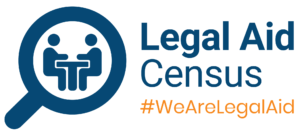 Lawyers across England and Wales are urged to ‘stand up and be counted’, by taking part in a unique drive to gather data from the legal aid front line.
Lawyers across England and Wales are urged to ‘stand up and be counted’, by taking part in a unique drive to gather data from the legal aid front line.
LAPG survey has been devised in conjunction with leading legal academics from Newcastle University Law School, Cardiff University and University College London who will be analysing its findings.
Legal Aid Practitioners Group is today launching the 2021 Legal Aid Census, to gather extensive data about the backgrounds and lived experiences of those working on the social justice frontline.
The census is supported by other representative groups, including Shelter, Housing Law Practitioners Association, Legal Action Group and the Black Solicitors Network, and aimed at everyone working in legal aid, those aspiring to work in legal aid and those who have left practice, at all levels (with questions tailored, accordingly). Business owners and charity managers will have the chance to share data about overheads, the cost of complying with Legal Aid Agency bureaucracy, salaries, training, recruitment and system failures. All participants will be asked about the toll of the work on their wellbeing, particularly during the pandemic.
You can access the Legal Aid Census here
The census will complement the work of the APPG on Legal Aid’s Inquiry into sustainability of the sector, which completed its oral evidence sessions last month (March 2021). The cross-party Inquiry is expected to report in September 2021, with a series of practical recommendations that can be implemented quickly to help legal aid providers recover from the impact of the pandemic. Data collected will be fed into the Treasury’s Spending Review and both the MoJ’s review into the sustainability of civil legal aid and Sir Christopher Bellamy’s review of criminal legal aid.
Official statistics show that the number of organisations with legal aid contracts has plummeted in recent years: civil legal aid offices have halved since 2013 (down to 1,774 in October 2020, from 3,500 pre-LASPO); with a similar drop in criminal legal aid offices over the same period (down to 1,058 from 2,338). 101 civil and criminal legal aid firms have been lost over the course of the pandemic alone. The census will be the first detailed exploration of the financial and other pressures behind lawyers giving up publicly-funded work.
LAPG CEO Chris Minnoch says:
‘We know from anecdotal evidence, and what we see with our own eyes every day, that the social justice sector is in crisis. The calamity caused by LASPO has been made immeasurably worse by the pandemic, but our government still refuses to act with the decisiveness and speed we know is needed. What we have lacked – and what the census will give us for the first time – is the hard data to back up our calls for urgent reform.’
LAPG Head of Parliamentary Affairs and APPG Lead Rohini Teather says:
‘We are urging every single legal aid lawyer across England and Wales to take part in LAPG’s Legal Aid Census, which has been road-tested by busy practitioners to make sure it is straightforward and easy to complete. The more of you who take part, the more data that we can gather and the stronger the case we can make to government. By giving us a few minutes of your time now, you will be helping to shape the legal aid scheme for many years to come.’
About the Legal Aid Census:
LAPG’s 2021 Legal Aid Census launches on 12 April, and closes on 11 June. The survey data will be analysed by Dr Jacqueline Kinghan, senior lecturer in law and social justice, Newcastle Law School, Dr Jess Mant and Dr Daniel Newman, senior lecturers in law, Cardiff University, with oversight by Dr Nigel Balmer, Research Director of the Victoria Law Foundation and fieldwork by UCL’s Centre for Access to Justice. All surveys will be completed online, and findings will be used to shape LAPG’s wider policy and campaigning strategy. The census will be promoted extensively through social media by LAPG and other representative groups, and through direct contact with legal aid providers. Practitioners will be able to complete the census online and will be asked to answer questions in the following capacities:
- as managers/owners within legal aid organisations;
- as legal aid fee-earners;
- as students and those trying to join the legal aid profession;
- as former legal aid practitioners who have chosen to leave the sector.
Those answering the survey on behalf of their organisations will be asked about delivery of legal aid post-LASPO and post-pandemic, plus about offices, fee-earners, contract compliance and other administrative details. LAPG has spent months working with the academics and practitioners and refining the questions so as to make them as user-friendly as possible.
About the APPG on Legal Aid inquiry:
The cross-party Westminster Commission on Legal Aid conducted six oral evidence sessions from October 2020-March 2021, taking evidence from lawyers and clients, across all the key areas of legal aid. It was chaired by Karen Buck MP with Vice-Chair James Daly MP and is expected to report in September 2021. Other panel members include Baroness Helena Kennedy, Baroness Natalie Bennett, Lord Low, Lord Bach, Gareth Bacon MP, Andy Slaughter MP, Laura Farris MP and Yvonne Fovargue MP.
Press enquiries: LAPG CEO, Chris Minnoch: chris.minnoch@lapg.co.uk
Census enquiries: research@lapg.co.uk
Read the Legal Aid Census FAQs here: https://lapg.co.uk/wp-content/uploads/Legal-Aid-Census-FAQs.pdf

Leave A Comment
You must be logged in to post a comment.